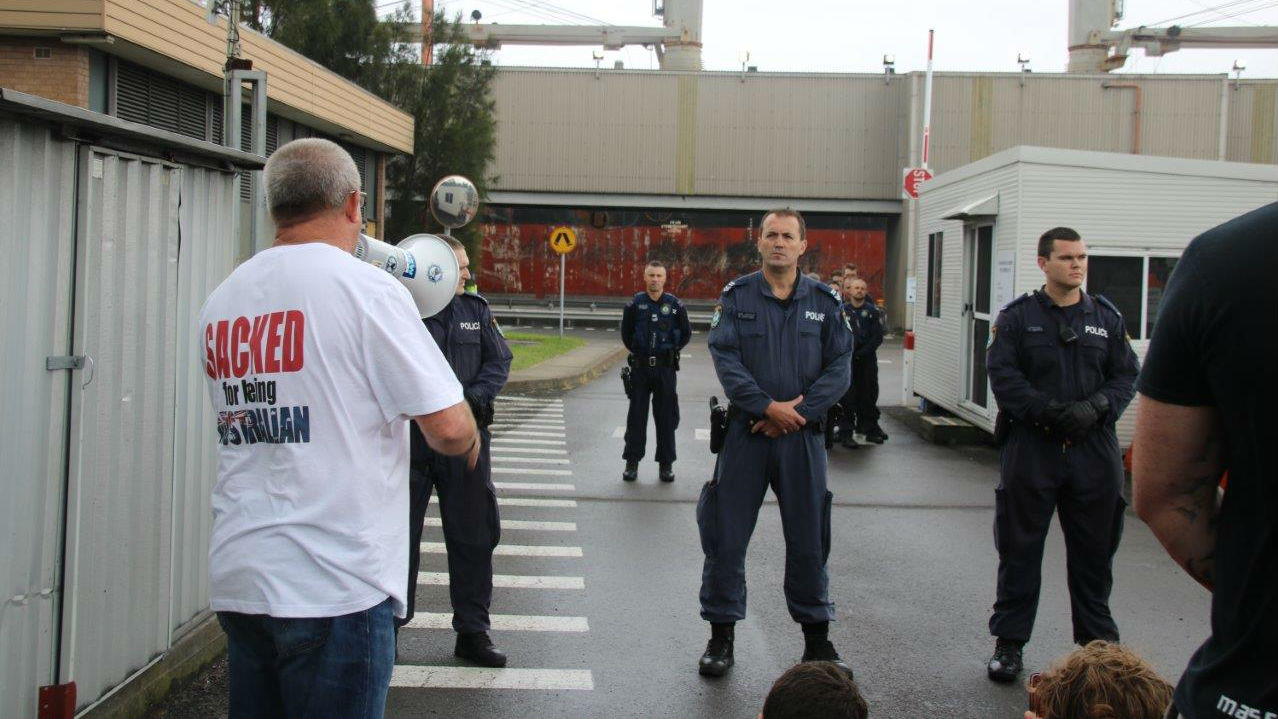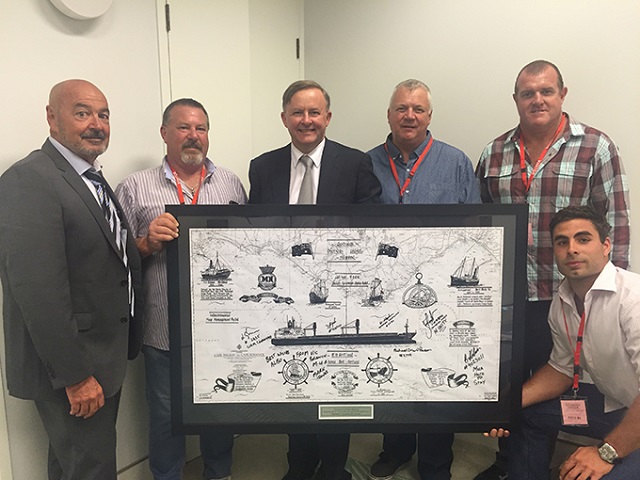ICS Defends Open Registries, Australia Not So Sure

The International Chamber of Shipping (ICS) has published its Shipping Industry Flag State Performance Table for 2015/2016 pointing to the positive performance of open registries (sometimes referred to as flags of convenience.)
The Table provides an annual overview of the performance of the world’s ship registers against a number of criteria, using data available in the public domain. ICS is keen to draw attention to the impressive number of positive indicators that are now being achieved by those flag states which are used by the vast majority of ship operators.
ICS Director of Policy & External Relations, Simon Bennett, explained: “One thing the ICS Table has demonstrated for many years is the lack of substance to arbitrary distinctions that are sometimes made between the performance of open registers and so called traditional flag states.
“About two thirds of the world fleet is now registered with the eight largest open registries, all of which show impressive levels of performance. While they might have been relevant 20 years ago, the ICS Table continues to show that such distinctions are no longer helpful.”
Bennett’s view is not shared by others in the industry. Australia announced a Senate Inquiry into flag of convenience shipping last year after a Four Corners program highlighted the suspicious deaths of three seafarers on board a Japanese-owned ship.
Over a six-week period in 2012, three crew members died working on board the Sage Sagittarius, a bulk carrier that carries coal between Australia and Japan.
In a submission to a Senate inquiry, the Australian Council of the Mission to Seafarers said the majority of flag of convenience companies did not abuse crews, but it was concerned about the Sage Sagittarius and a man-overboard incident on the K Pride as the ship was heading to Newcastle, Australia, in 2015.
The Maritime Union of Australia has indicated that suicide is 20 times more prevalent for seafarers on flag of convenience vessels.
There were 24 submissions to the Inquiry including one from the Department of Immigration and Border Protection which says the use of flag of convenience ships are more attractive for use in illegal activities. The submission also states that these ships, with complex financial and ownership arrangements, can be shrouded in secrecy making it difficult to hold anyone to account for injuries and deaths on board.
The senate inquiry coincides with a move from by the Australian Federal government to deregulate the Australian shipping. This is raising concerns about the loss of Australian jobs being lost and potential weakening of labor standards. Over the last few months, two ships – the MV Portland and the CSL Melbourne – have had their Australian crews sacked and replaced by developing world workers. As a result the MUA and other unions have set up a Jobs Embassy outside of parliament house.
In its submission to the Inquiry, ICS states: “ICS notes that the Senate inquiry concerns so-called ‘Flags of Convenience.’ In the opinion of ICS, this is actually a pejorative term that has its origins with a political/ industrial relations campaign waged by the International Transport Workers’ Federation (ITF) since the 1940s, originally in response to the use by U.S. shipping companies of the Panama and Liberia flags.”
The submission continues: “Ironically, because of the influence of ITF’s industrial relations policy, the pay received by many seafarers from developing countries, serving on ships under a flag designated as ‘FOC’ by ITF, is actually superior to those serving on ships under developing countries’ flags which are not open registers. This is because many seafarers on ‘FOC’ ships are subject to collective bargaining agreements approved by ITF, without which the ships might be subject to boycott action by ITF’s dock worker affiliates worldwide. However, this boycott policy is not usually applied by ITF to ships on what it regards as ‘non-FOC’ flags, even if the employment conditions might be inferior.”
ICS believes that foreign ships have no direct impact on Australia’s minimum employment law standards. Except in those trades where Australian requirements may also apply, foreign seafarers are subject to the employment law of their flag State and their country of residence, as well as the requirements of the ILO Maritime Labour Convention.
The Inquiry findings are expected to be released on February 26.
Submissions to the Inquiry are available here.
The ICS Table is available here.

A graphic story depicting the life of the trade of the MV Portland, which was signed by sacked crew and created by retired Seamens’ Union member Don Straun has been presented to Australia’s Shadow Minister for Infrastructure Anthony Albanese.
